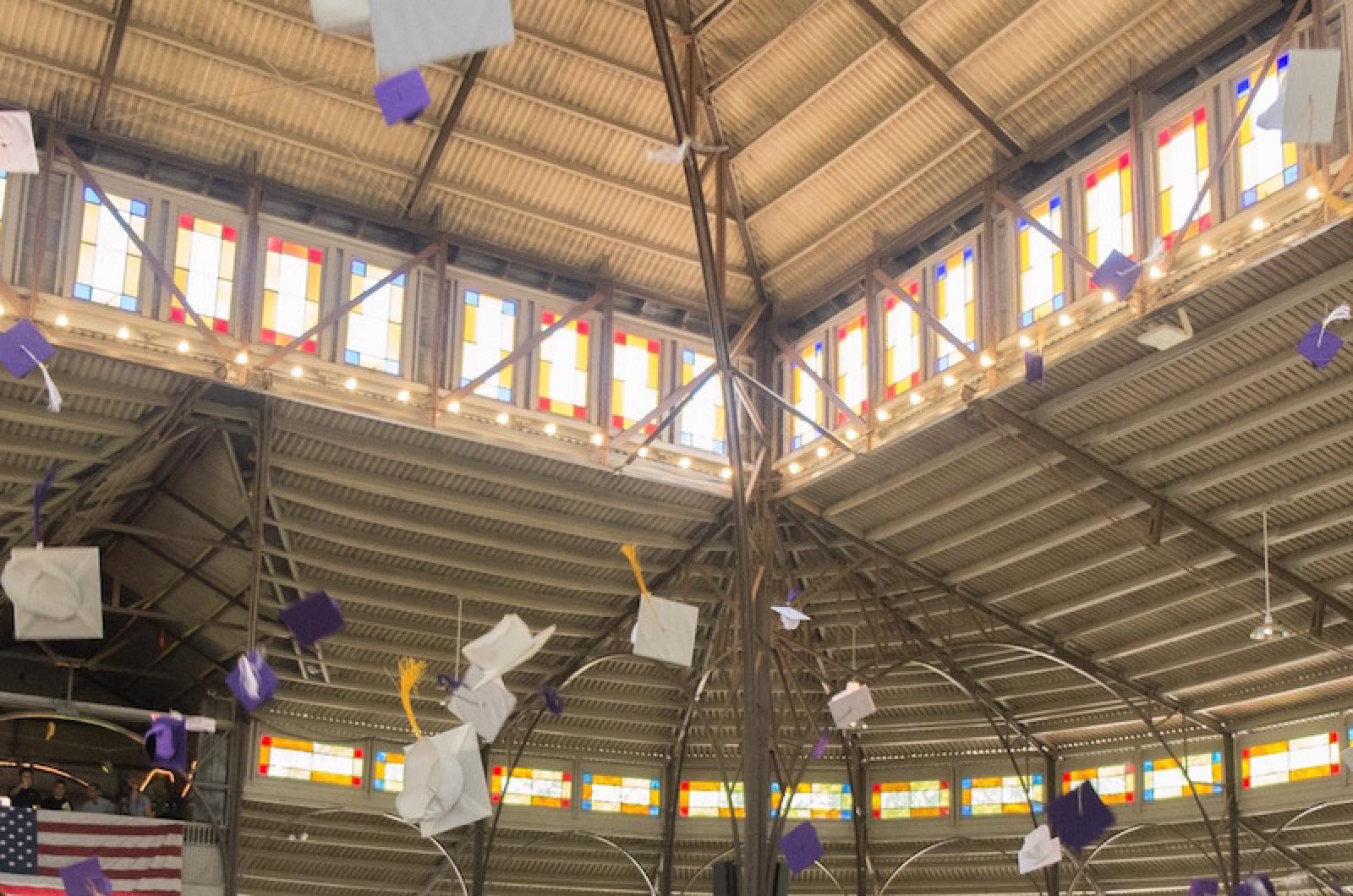From the June 17, 1960 edition of the Vineyard Gazette:
With dignity and seriousness of purpose, sixty-one students were graduated from the Martha’s Vineyard Regional High School Sunday afternoon before a capacity audience in the school gym. The ceremony was an impressive one, and for the many people in the audience who had been close to the years-long struggle to make the consolidated secondary school a reality on the Vineyard, it was a moving one.
The feeling of the occasion was that this day marked not only the commencement of these young people in adulthood but also the commencement of a new era in Island education. The class of 1960, besides being the first class to have the distinction to be graduated from the new school, had been in many respects a test class.
It was the class of young Vineyarders who were exposed to and who received in the most concentrated of forms a concept of education totally new on the Island. It was these youngsters who, after eleven years of adjustment to what at both its best and worst could be called provincial schooling, had to readjust to the fact that they were not only citizens of the rival Island towns, but also, and more important, citizens of the whole Island community.
The class of 1960 was also a class which necessarily had to serve as a foil for the trials and starts to which any new system is subject, and as a class it weathered these and was perhaps strengthened by them, for it is already apparent that this class has set precedents that all the succeeding classes will have to live up to.
If the Vineyard could be proud of its first Regional School graduation class, the class members were in turn proud of the Vineyarders who gave them the school, and also proud of the school. This pride was the theme of the address of the salutatorian, Miss Elizabeth K. Sullivan.
Miss Sullivan traced the growth in educational processes, and contrasted the old days of education with the new days, when the teaching methods are geared to meet the demands of a highly complex age. She referred to the fact that students are no longer required to memorize cut and dried facts, but that they are required to understand the facts of the past and the present and the possibilities of the future.
The contemporary school has discovered the importance of activities outside the realm of pure scholasticism, she pointed out, particularly as training in the use of leisure time, which Americans are finding they have more and more of as technological advances and population growth have created shorter laboring hours.
Miss Sullivan also observed that discipline itself had come under a process of maturation, that whereas the rod was once inflicted physically and often painfully, today a symbolic rod is wielded by means of a psychological understanding of students by the faculty and the administration.
These advances, Miss Sullivan suggested, are epitomized in the conduct of both the curricular and extracurricular activities of the new school. She said that she and her classmates were for this reason proud of their school, but prouder still of the Islanders who have made their sacrifices necessary to bring the school into being.
The graduation address was presented by William F. Young, the deputy commissioner of education of the state Department of Education. He urged the students to regard very carefully “what you consider to be your place in the sun.”
He said that he realized that not all of the graduates had yet established their goals in life, but that when they did they would be well advised to keep in mind a number of qualities which are requirements for a successful life. Perhaps the most important of these, he said, was integrity, “one of the great virtues,” but not far behind in importance was the recognition of the dignity of the human individual and a sympathetic understanding of other people.
Understanding of other people, Mr. Young observed, is a quality that many Americans have either lost or become callous about as the result of living in “almost perfect luxury.”
The valedictorian, Miss Veronica A. Kelly, also spoke of the future and the intellectual requirements for meeting it satisfactorily. She likened life for the graduates from that point on, to a competitive turnpike. The formulation of a set of values, she said, is absolutely essential if the young adult is going to maintain a constructive pace along that highway.
The diplomas were awarded by Alfred Hall, the chairman of the regional school district committee. Marshalled — the boys in blue academic gowns and the girls in white — filed up from their seats to be accorded this signal honor and afterwords they sang the class song. A bank of flowers crossed the front platform, and evergreen shrubs formed a background. Altogether, the setting seemed a harbinger of a bright future.
Compiled by Hilary Wall
library@mvgazette.com




Comments
Comment policy »